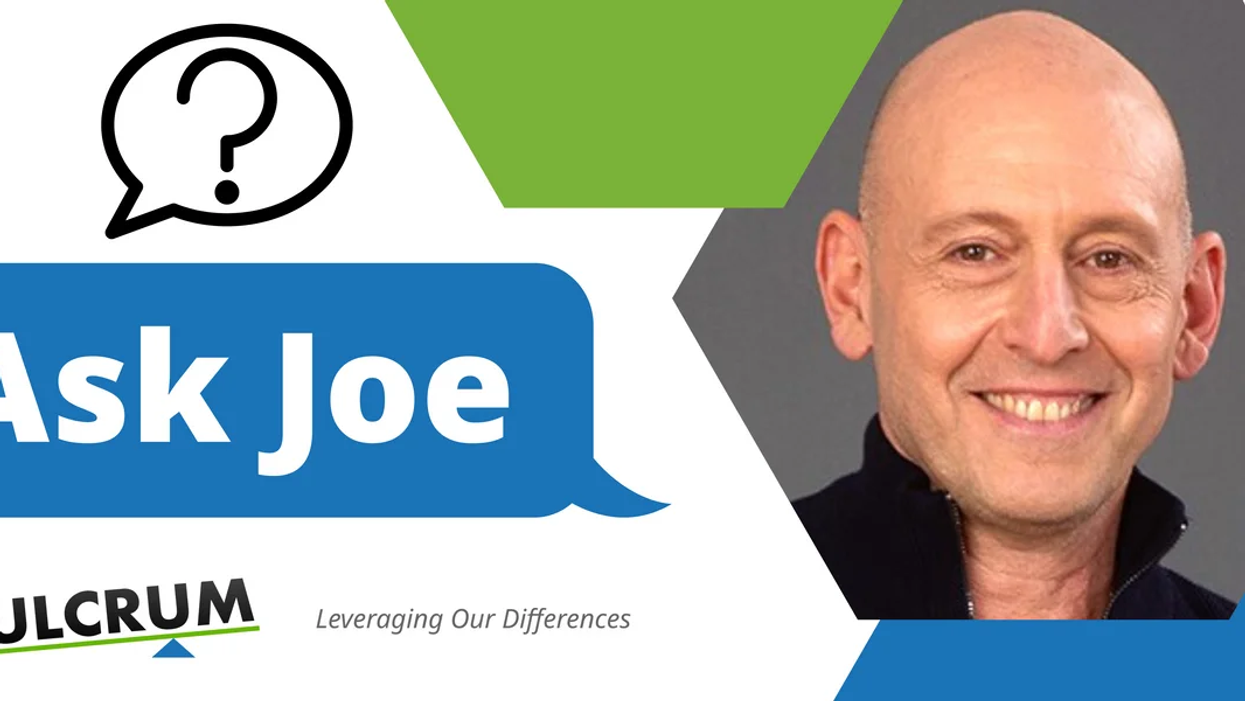Hi Joe,
I’m trying really hard to stay peaceful but it’s not working. You talk about civility, but that’s not going to work with people who are intent on tearing things down. So many people in power are purposely trying to wreck our institutions. How is civility going to help?
Done
Hey, Done.
You are expressing something I hear so often. It’s hard to stay peaceful when our default response to most things is to fight and attack – anywhere from militia groups threatening violence against people who are simply doing their jobs to canceling someone online without investigating all the facts of a situation. We’re disempowering one another by responding in our default mode, and using an old notion of civility won’t make this go away.
The work of Fierce Civility is to stand strong and be fierce in our commitment to not give in to the current trends of lack of civility. And yes, Done, at the moment, that requires all of our physical, emotional, mental and spiritual resolve. In these times, it demands all our strength to not be drawn into fighting and volatility.
Caught up in this reactive way of defending what we believe in, we’re overlooking that the true enemy of our time is lack of civility. We can no longer debate challenging topics, or very rarely advocate for policy change in a collaborative way. The issues we’re discussing are the same issues we have always been discussing; what has changed is how we’re doing it. So, if we want to see a way forward, we need to focus on how we’re approaching one another; not just on what we want to say.
We need upgraded skills to fiercely and civilly challenge bullying, cheating, scapegoating and canceling our opponents. We need to resist apathy, cynicism, extreme self-interest and hopelessness. Until we confront and neutralize the lack of civility or manipulation, we will most likely remain stuck in our current rut of debilitating gridlock.
Having lived and worked in many countries around the world, including conflict zones, I know many people who face this dilemma every day. Even some communities and neighborhoods in the United States are confronted with this reality. In these places, respect, dignity, community and basic human needs are not taken for granted. In the most extreme circumstances, this can mean a day that doesn’t include a bomb dropping on their neighborhood is considered a good day. They know that the ability to hold on to their highest values of compassion, kindness and peace in the face of adversity is a choice. And one that doesn’t always come easy. They have cultivated the resilience, fortitude and stamina to maintain this level of civility – for themselves, their children and for their community.
Here in the United States – in the media, at social gatherings, in intellectual circles, even in government – we are seeing escalations of tensions, speech and acts of violence that some compare in its severity to the Civil War. Perhaps it’s time that more Americans join the rest of the world and not take our liberties and comforts for granted. Instead, while the issues we fight for are important, a higher priority could be to unite with those who share a common commitment to civility and rule of law and build alliances in new, and potentially surprising, places. Alliances that transcend age, race, gender, title, geography, academic stature, financial status, political affiliation and more.
Increasingly, we see that using reason or data points to reach those on the extremes of our political polarization isn’t effective. But as a united front, our fierceness to practice civility would strengthen our individual and collective resilience, resourcefulness, self-care and safety. It will build and deepen our relationships with our allies.
These times are calling on us to remember who we are at our best. And to appeal from the heart to encourage others to do the same. Legendary civil rights advocate Grace Lee Boggs said: “A movement begins when the oppressed begin seeing themselves as pioneers in creating new, more human relations and thus advancing the evolution of the human race. Confident of their own humanity, movement builders are able to recognize the humanity in others, including their opponents, and therefore the potential within them for redemption.”
I am seeing so many who are confronted with this reality right now and are feeling compelled to take action in a new way. While my words may not rid you of your frustration, Done, I hope it brings some sense of peace and clarity. For your own wellbeing and for us all.
In other words, you are not alone.
Joe
Learn more about Joe Weston and his work here. Make sure to c heck out Joe’s bestselling book Fierce Civility: Transforming our Global Culture from Polarization to Lasting Peace, published March 2023.
To Ask Joe, please submit questions to: AskJoe@Fulcrum.us.




















Marco Rubio is the only adult left in the room